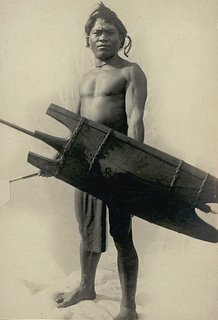Modus operandi in bid fixing
Bribery used to be a simple operation, the exclusive domain of contractors. They only have to bribe officials in exchange for a winning bid. Now, a well-entrenched Mafia--involving colluding government officials, lawmakers and favored firms--dictates who wins and loses in government projects.
Bidders and those who have first-hand knowledge of the wheeling and dealing in government contracts fleshed out to World Bank investigators how the anatomy of corruption works in the Philippines.
It is a scheme that bidders are forced to play, if they have to have an even chance of bagging a contract. Those who do not cooperate “are subject to elimination from bidding in future contracts.” This was the case of one foreign contractor in a public works project that refused to play the game. The foreign contractor was among those interviewed.
As detailed by those interviewed by the WB, in large government contracts, “ the process is completely fixed. Prices are determined, and winners and losers are determined, before the bidding even takes place.”
In the past, contractors would just obtain the approved budget contract (ABC) for a package by bribing officials within an agency. Then bidders would just arrange among themselves which contractor would bag the contract.
Politicians set the rules
But this time, it is now the politicians who set the rules. “Contractors engage in a sort of auction, where the contractor willing to pay the largest bribe can win the politician’s support,” one local contractor told WB probers. We got portions of the WB inquiry containing interviews with local and foreign contractors and a former government official.
Normally, one has to deal with politicians in both the national and local level—the former who controls the implementing agency and the latter, whose area is hosting the project. One former senator was known “to be very active in using his influence to further the collusive bid scheme.”
At this point, word of honor is not honored. The one who has the money reigns supreme. Bribe, preferably, should be given at once to seal any agreement.
It is also crucial to be in the favor of the ‘facilitator’ of the bidding manipulation, which bidders say is contractor Eduardo de Luna, owner and proprietor of the now-blacklisted E.C de Luna Construction Corp. for public works projects. Contractors interviewed by WB says de Luna has connections in the public works department who are part of the cartel.
At least two WB witnesses identified them as Public Works assistant regional director for Region 4 Huillio Belleza and one Tito Miranda, supposedly assigned at the DPWH-Philippine-Japan Highway Loan Project Management Office, as members of the Mafia.
We tried to get in touch with Belleza and Miranda but they were out of office as of this writing.
SOP and sham bidding
Several witnesses told WB probers that de Luna enjoys the backing of First Gentleman Miguel “Mike” Arroyo. De Luna, they say, acts as Mr. Arroyo’s go-between in foreign assisted projects.
One contractor said E.C de Luna is so powerful that it controls most of the bidding at the Department of Public Works and Highways. The WB source said it was through E.C. de Luna operations that China Geo Engineering Corp., China Road and Bridge Corp, and China Wu Yi Co. Ltd., three of the blacklisted firms by the WB, won the bidding for WB-funded projects. The source had predicted that these three Chinese would win the bids before the tender offers were opened.
Once the ‘winning’ firm has been identified with the blessing of the cartel, the sham bidding begins. Designated ‘losing’ bidders, in collusion with the syndicate, complete the charade.
The previous standard operating procedure (SOP) was for the ‘winning’ bidder’ to provide three percent of the advance payment for the project to the losing bidders. SOP to the politicians is also taken from the advance payment. One former public works secretary was also reported to be on the take.
But recently, the practice is to split a percentage of the advance payment between the politicians and the intermediary. A lawmaker who acts as sponsor to the bidder gets 15-20 percent of the project value while local officials share between 2-3 percent. The intermediary is responsible for the share of the losing bidders.
'No one can stop it'
The kickback is nothing to scoff at. Total payoff, according to the local contractor, ranges from 15-27 % of the total value of the contract. This does not include up to 20 percent in “unnecessary costs added to the project,” a former government official with intimate knowledge of bidding in the public works told the WB’s Integrity Vice Presidency unit. The “unnecessary costs” are mean to cover the costs incurred for the bribe.
Expectedly, all payments are in cash. “Company books do not reflect any of these payments in any event, because the books are faked to avoid taxes, ” said a local contractor.
The former government official supported this assertion, adding that bribery extends to internal revenue officials to keep the company’s financial books above board.
In essence, one confidential witness, also a contractor, told WB probers, is that “the corruption involvement in this bidding is extensively from FG (First Gentleman and congressmen to DPWH officers and contractors. No one has the ability to stop it.”
ABS-CBN/Newsbreak
as of 02/03/2009 4:16 PM
Labels: Bribery, Public Bidding, World Bank





 Deviant Art
Deviant Art